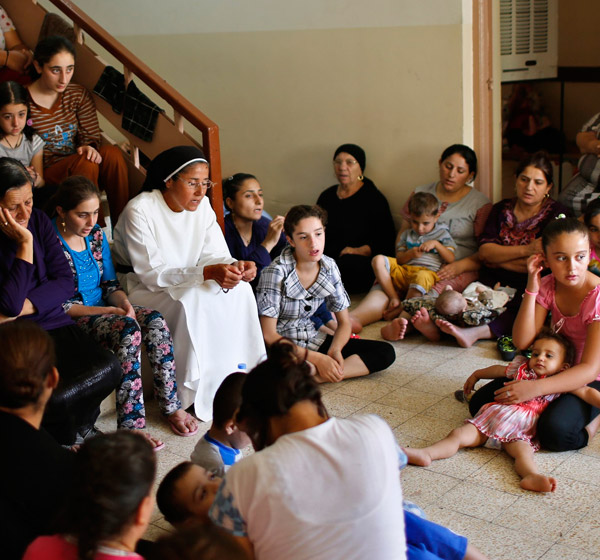Mideast archbishops see US discrimination against Christian refugees in grant of visas

Catholic archbishops from Iraq and Syria are speaking out in defence of displaced Christians who are having a difficult time in applying for US visas to enable them to escape persecution in their own country and settle in a new land, such as the US, where they can freely practice their faith.
Chaldean Archbishop Bashar Warda of Erbil, Iraq, and Melkite Archbishop Jean-Clément Jeanbart of Aleppo, Syria, spoke recently at the Knights of Columbus 2015 Convention press conference in Philadelphia, describing the plight of Christians in the Middle East, according to the Catholic News Agency.
They said they found out from official US government sources that since October last year, 906 Muslim refugees from Syria have been granted US visas. However, out of the 700,000 displaced Christians from Syria who applied for a US visa during the same period, only 28 succeeded in getting one.
The archbishops said the apparent discrimination against Christians in the granting of US visas might not have reached the attention yet of the White House, but they said this is clearly a case of injustice.
"Our people are asking these questions: How come we apply for the American visa and are denied?" Archbishop Warda said. "This is a clear case of persecution. They're being denied visas while others who have participated (in the violence) or at least were silent can go."
The two said they would like their people to stay in their own country and help rebuild the Christian population there, but they also know how dangerous it is to live there right now so they are supporting Christians who want to leave.
"We would like our people to stay, we would like (that), but emigration is a personal decision; we cannot encourage, but we cannot stop it," Archbishop Warda said.
Archbishop Jeanbart, for his part, said it would be less expensive for Americans in the long run to help Christians stay in the Middle East rather than accept hundreds of thousands of refugees in the future.
"Help them to stay and help the society there," he urged. "The first thing they need is peace. Help us to get peace, and then the people will be happy staying in Syria."











